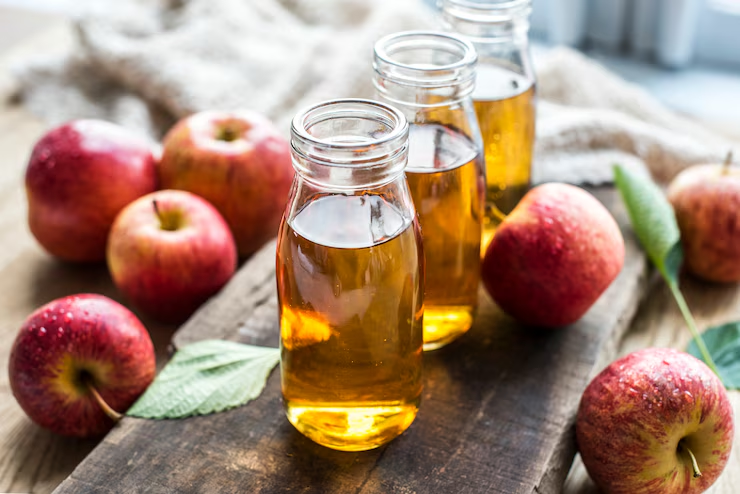Allulose syrup is flooding the health food scene, promising the sweetness of sugar without the calories or blood sugar spikes. Dubbed “the holy grail of sweeteners” by keto bloggers, this liquid gold has everyone asking: Is it too good to be true? Let’s dissect the science, weigh its pros and cons, and reveal why organic allulose syrup might (or might not) deserve a spot in your pantry.
Allulose 101: The “Almost Sugar”
- What Is It?: A rare sugar naturally found in figs, raisins, and maple syrup. Commercially made via enzymatic fermentation of non-GMO corn or tapioca.
- Sweetness: 70% as sweet as table sugar.
- Calories: 0.4 kcal/g (labeled as zero-calorie in the U.S. due to lax regulations).
- Glycemic Impact: GI = 0. Doesn’t raise blood sugar or insulin.
4 Proven Health Benefits of Organic Allulose Syrup
- Blood Sugar Guardian
- Science Says: A 2022 Nutrition & Metabolismstudy found 15g of allulose reduced post-meal glucose spikes by 10% in diabetics.
- Mechanism: Blocks intestinal enzymes that break down carbs.
- Weight Management Aid
- Appetite Control: Unlike artificial sweeteners, allulose doesn’t trigger hunger hormones (American Journal of Clinical Nutrition).
- Fat Burner: Animal studies show it increases fat oxidation (needs human trials).
- Dental Health Protector
- No Cavities: Oral bacteria can’t metabolize allulose, preventing enamel erosion.
- Gut-Friendly (In Moderation)
- Prebiotic Lite: Feeds beneficial bacteria like Lactobacilluswithout the bloat of FODMAPs.
The Dark Side of Allulose Syrup
- Digestive Drama (Over 50g/Day)
- Side Effects: Gas, diarrhea, cramps—common with excessive intake.
- “Organic” Isn’t Always Pure
- Non-Organic Risks: Most allulose is made from GMO corn treated with glyphosate.
- Legal Loopholes
- Misleading Labels: U.S. allows “zero-calorie” claims despite 0.4 kcal/g—problematic for strict keto trackers.
Organic vs. Regular Allulose Syrup
| Factor | Organic Allulose Syrup | Regular Allulose Syrup |
| Source | Non-GMO tapioca/organic corn | GMO corn (pesticide residues) |
| Processing | Enzymatic (no synthetic solvents) | Chemical extraction (HCl possible) |
| Purity | No residual heavy metals | Risk of arsenic/lead contamination |
| Eco-Impact | Sustainable farming practices | Supports monocropping |
Takeaway: Organic ensures cleaner sourcing but doesn’t negate overconsumption risks.
Who Should Use It?
- Diabetics/Prediabetics: Safely sweeten coffee, oatmeal, or baked goods.
- Keto/Carnivore Dieters: Won’t kick you out of ketosis.
- Parents: Use in homemade low-sugar snacks for kids (prevents cavities).
Who Should Avoid It?
- IBS Sufferers: High doses (>30g) may trigger bloating.
- Allulose Intolerant: Rare but possible (test with 1 tsp first).
- Calorie Purists: Track every gram? Stick to stevia.
How to Use Organic Allulose Syrup Safely
- Baking: Substitute 1:1 for honey/maple syrup. Adds chewiness to cookies!
- Sauces & Glazes: Caramelizes like sugar—perfect for BBQ or teriyaki.
- Coffee/Cocktails: No aftertaste, unlike monk fruit or stevia.
- Daily Limit: Stick to ≤40g (≈8 tsp) to avoid gut issues.
Allulose vs. Other Sweeteners
| Sweetener | Calories | Blood Sugar Impact | Baking Performance |
| Allulose Syrup | 0.4 kcal/g | Lowers glucose | Excellent (caramelizes) |
| Erythritol | 0.2 kcal/g | Neutral | Gritty texture |
| Monk Fruit | 0 | Neutral | Requires bulking agents |
| Honey | 3 kcal/g | Spikes glucose | Great |
Winner: Allulose for baking, monk fruit for drinks.
Why “Organic” Matters
Non-organic allulose often comes from GMO corn sprayed with glyphosate (linked to gut dysbiosis). Certified organic allulose syrup guarantees:
✅ Non-GMO, pesticide-free crops
✅ No synthetic enzymes or solvents
✅ Third-party heavy metal testing
FAQs
Q: Does allulose cause cancer?
A: No—FDA and EFSA deem it safe, but long-term studies are ongoing.
Q: Safe during pregnancy?
A: Yes, but consult your OB-GYN.
Q: Shelf life?
A: 2+ years unopened; 1 year after opening (store in cool pantry).
Q: Vegan?
A: Yes! No animal products used.
Organic allulose syrup is a game-changer for diabetics, keto fans, and anyone craving sugar-like sweetness without the downsides. While it’s not flawless (moderation is key!), its ability to lower blood sugar and mimic sugar in recipes makes it a standout. Just skip the cheap, non-organic stuff—your gut and metabolic health are worth the upgrade.
